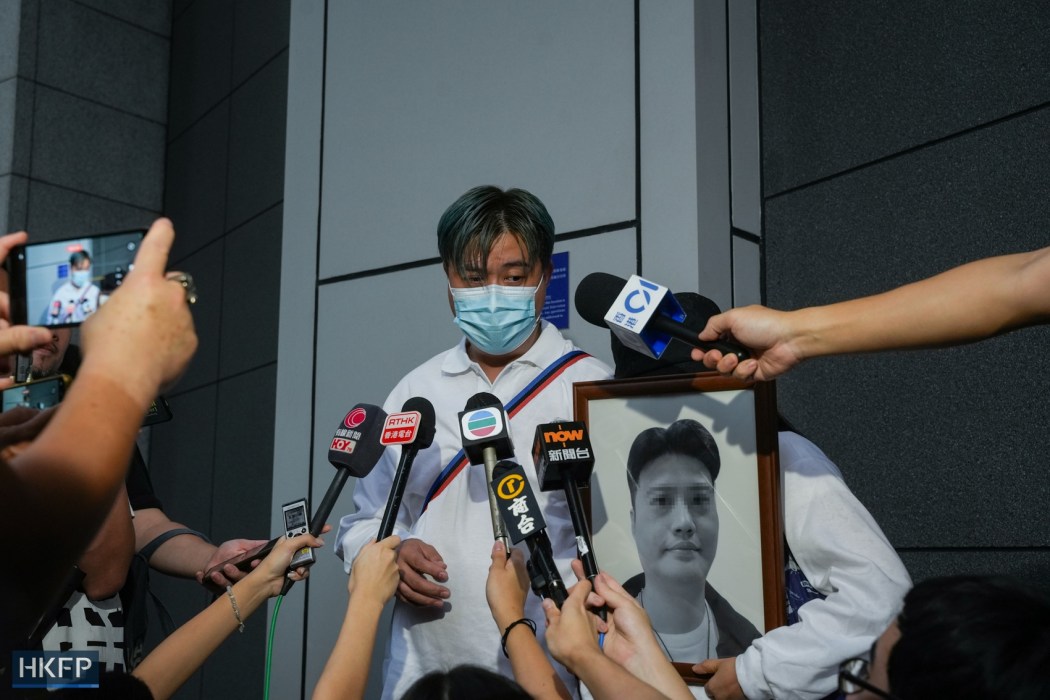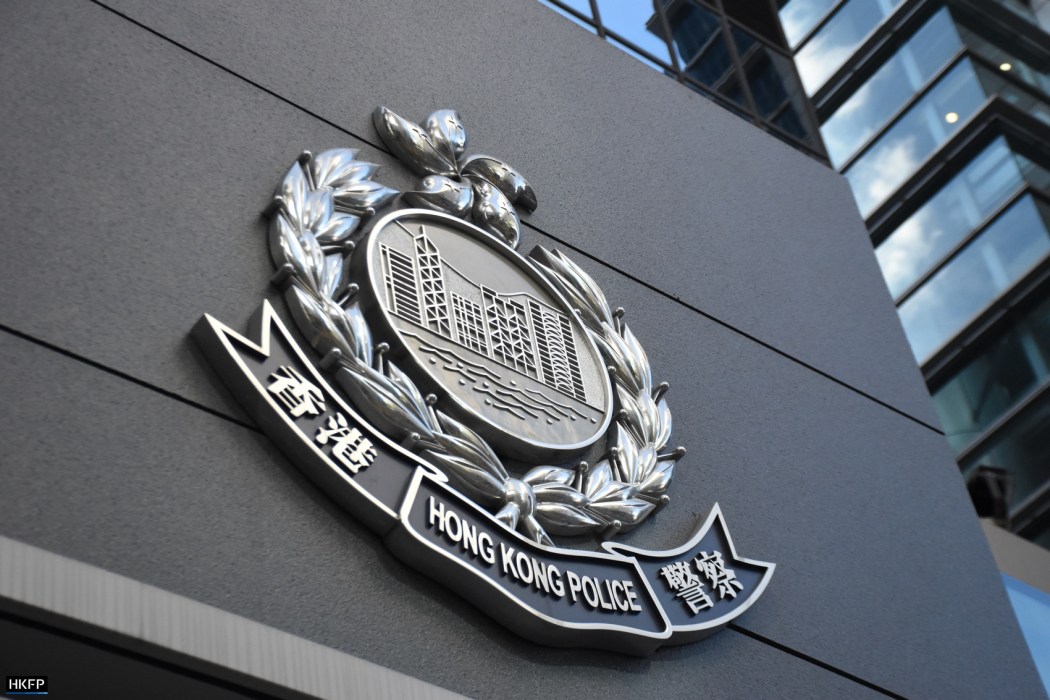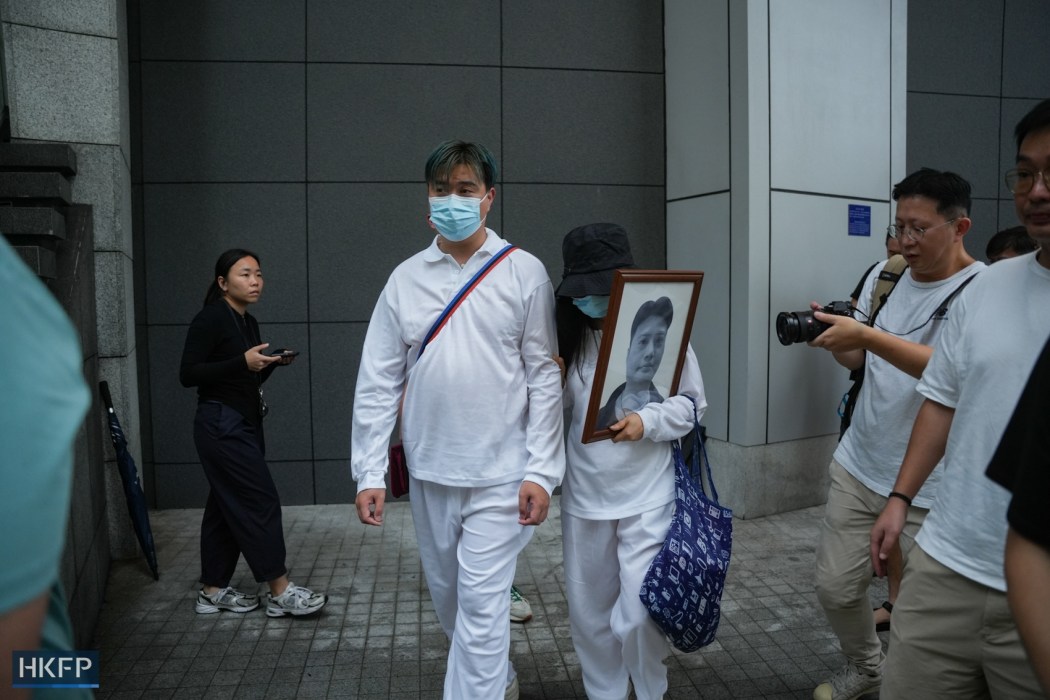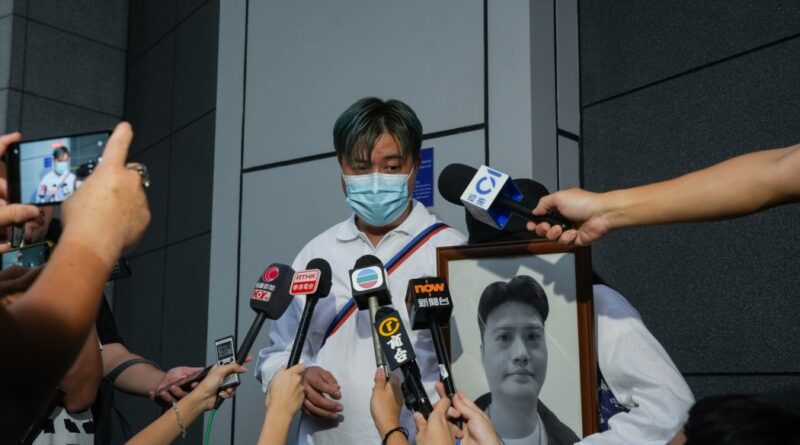Hong Kong police need better response to mental health crises
Posted by Daisy Cheung
The recent incident in North Point involving the death of a mentally challenged man at the hands of police responding to an emergency at his home is tragic, but unfortunately not uncommon around the world.

In places around the world, the police often act as first responders to cases involving mental health problems, although in many cases they lack strong training to support such people. A quick search reveals the names of many vulnerable people who died suddenly as a result of interactions with the police last year.
As the number of people who die in such a way increases, places around the world are starting to take a long look at how the police should be involved in situations involving people with intellectual disabilities.
See also: ‘My son was scared, not a bad man’ – Family of mentally ill man shot by Hong Kong police remembers tragedy
Many countries want the police to be reformed, and in some cases, even the police themselves have decided that they may not always be the best responders, since the presence of ‘ this may be an “increasing factor” in itself.
What lessons can Hong Kong learn from the experiences of these countries? Firstly, the issue of police inadequacies in dealing with mental health issues must be recognized and addressed head on, rather than being swept under the rug as another phenomenon. where death was unfortunate, but the use of force may be justified in those circumstances.


Concerns about how the Hong Kong police handle people with intellectual disabilities are not new. In 2015, an autistic person was wrongfully accused of murder. Faced with strong criticism of the way they handled the incident, police set up a task force to review their practices for people with intellectual disabilities – known to officers as MIPs or “mentally unsound persons” under the Mental Health Ordinance.
New measures were subsequently implemented, including the Attention Card Scheme, the creation of a Code of Conduct, and police training on how to deal with people with disabilities. mind. Apart from these measures, which appear to be largely ineffective, police guidelines regarding people with intellectual disabilities are often non-existent.
Chapter 34 of the General Police Guidelines, “Family Conflict, Sexual Violence and Vulnerable Persons,” has a very short section entitled, “Working with the Mentally Ill.”
This three-paragraph section simply states that the police must find a suitable adult to accompany and assist the person in question, whether the victim, witness or suspect, and that the person is The appropriate elder should be given appropriate information to help them understand their situation. roles and responsibilities.


This complete lack of guidance on exactly how police should respond to mental health issues is troubling. At the very least, clear and comprehensive guidelines requiring the police to de-escalate must be put in place.
Many methods and techniques have been developed to deescalate the situation, which usually involves keeping the person quiet and talking to them to build rapport. Regardless of which approach the Hong Kong police choose to adopt, it should be laid out in a clear and concise, step-by-step manner, in order to minimize any difficult judgment calls that need to be made in the circumstances. which is already very difficult.
Such guidelines will also need to be supplemented by education and training. Although it is admirable that the police involved a variety of different opinions – including clinical psychologists and representatives of the Department of Social Welfare, Hospital Authorities, NGOs, and parent groups – in the development of measures related to people with mental disabilities. , more specific and effective training is needed.
An example of this is the Mental Health Crisis Response Training Program, which has also been adapted to a virtual reality format. Participating in this approach, which consists of training manuals, problem-based scenarios, simulations and a proven assessment framework known as DePICT, has been shown to significantly improve police officers’ ability to de-escalate and respond to life-threatening emergencies. the beauty of the mind.


Apart from training and guidance, Hong Kong should consider the possibility of other methods to respond to such situations. The Crisis Intervention Team (CIT), for example, trains selected members of the police who volunteer to receive this training. Calls involving mental health issues are then assigned to CIT-trained officers.
Co-responder models, on the other hand, generally include police and mental health service providers, such as psychiatrists, who jointly respond to mental health problems. Groups can come together or separately, or a mental health service provider can be present by phone or video.
The program design is flexible and should be adapted to the Hong Kong context, and given the resources and other practical information, a response model that includes the participation of an online mental health service provider you can work.
The cost of fatal police shootings in mental health crises to the individual, their family, and the trust between the community and the police is unimaginable. Hong Kong needs to pay attention to how the rest of the world is dealing with this widespread tragedy, and introduce changes before the next vulnerable person falls short of the support and help they so desperately need.
Daisy Cheung is an Associate Professor in the Faculty of Law at the University of Hong Kong, as well as the Deputy Director of the Center for Medical Ethics and Law. His research interests are primarily in the areas of mental health and intellectual property law, as well as medical ethics and law in general.
Story type: Opinion
Advocates ideas and makes decisions based on interpretation of facts and figures.
Support HKFP | Rules and Code of Conduct | Error/typo? | Contact Us | Light | Transparency & Annual Report | Tools
Help protect press freedom and keep HKFP free for all readers by supporting our team
| HKFP is an unbiased platform and does not necessarily share the opinions of opinion writers or publishers. HKFP offers diversity and regularly invites people across the political spectrum to write for us. Freedom of the press is guaranteed under the Constitution, the security law, the Bill of Rights and the constitution of China. Opinion pieces are intended to point out errors or weaknesses in the government, law or policies, or the purpose of expressing opinions or changes in legal procedures without the intention of hatred, dissatisfaction or hostility against the authorities or other communities. |


#Hong #Kong #police #response #mental #health #crises
